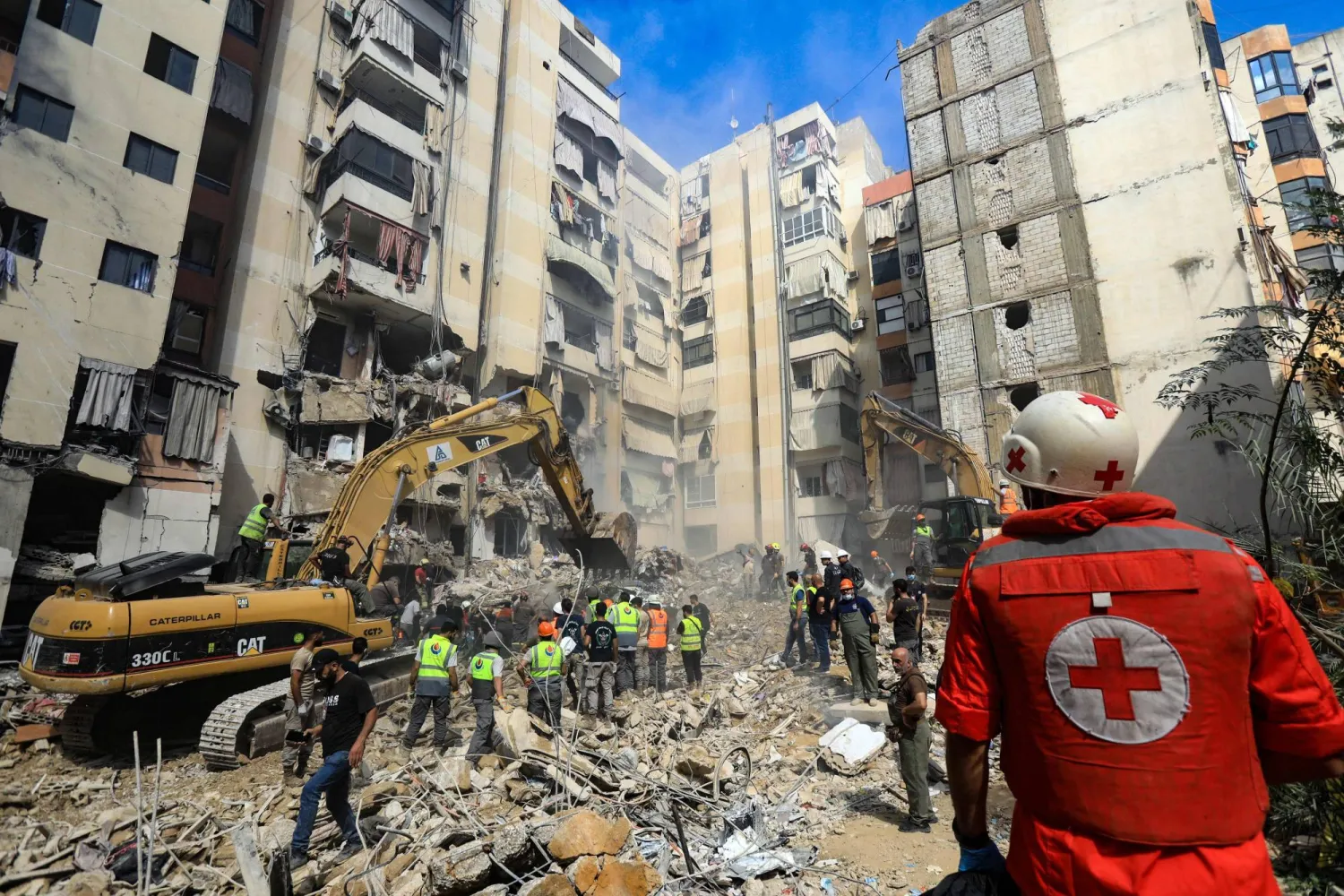Lebanon’s Health Ministry said on Sunday that the death toll from Friday’s Israeli strike on Beirut’s southern suburbs rose to 45.
Israel carried out a deadly airstrike in Beirut on Friday killing tens of people, including one of Hezbollah's top leaders as well as women and children. Hezbollah was already reeling from a sophisticated attack that caused thousands of personal devices to explode just days earlier.
The Israeli military said it carried out a wave of strikes across southern Lebanon over the past 24 hours, hitting some 400 militant sites, including rocket launchers. Lt. Col. Nadav Shoshani, an Israeli military spokesman, said those strikes had thwarted an even larger attack.
Early on Sunday, Hezbollah launched over 100 rockets across a wider and deeper area of northern Israel, with some landing near the city of Haifa, as the sides appeared to be spiraling toward all-out war following months of escalating tensions.
Lebanon: Death Toll from Friday Israeli Strike on Beirut Southern Suburbs Rises to 45

Rescuers sift through the rubble at the scene of an Israeli strike that targeted Beirut's southern suburbs a day earlier, as search and rescue operations continue on September 21, 2024. (Photo by AFP)

Lebanon: Death Toll from Friday Israeli Strike on Beirut Southern Suburbs Rises to 45

Rescuers sift through the rubble at the scene of an Israeli strike that targeted Beirut's southern suburbs a day earlier, as search and rescue operations continue on September 21, 2024. (Photo by AFP)
لم تشترك بعد
انشئ حساباً خاصاً بك لتحصل على أخبار مخصصة لك ولتتمتع بخاصية حفظ المقالات وتتلقى نشراتنا البريدية المتنوعة







